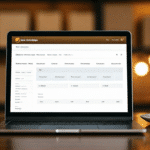The Benefits of Conducting Freight Audits
If you're involved in logistics or transportation, you understand the importance of accurate and timely billing and payment for freight services. Increasingly, companies are turning to freight auditing to ensure correctness in billing and avoid overpaying for services. The benefits of conducting freight audits extend beyond cost savings. Let's explore them in detail.
Understanding Freight Audits: An Overview
Freight auditing is the process of reviewing and verifying transportation costs to ensure accuracy. It involves analyzing carrier invoices and comparing them to contracted rates, along with any applicable surcharges or accessorial fees. Auditors search for billing errors, rate discrepancies, duplicate charges, or other issues that could lead to overpayment.
Freight audits play a critical role in supply chain management by identifying cost-saving opportunities and enhancing the company's bottom line. By detecting billing errors and overcharges, firms can recover funds that would otherwise be lost. Furthermore, freight audits deliver valuable data and insights into carrier performance, which can be leveraged to negotiate better rates and increase overall transportation efficiency.
There are various types of freight audits, including:
- Pre-audit: Reviewing carrier invoices before payment is made.
- Post-audit: Reviewing invoices after payment has been made.
- Self-audit: When a company audits its transportation invoices internally.
Each audit type has its unique advantages and drawbacks. Companies should select the type that best aligns with their needs and resources.
How to Conduct a Successful Freight Audit
A successful freight audit demands a comprehensive understanding of the logistics industry and expertise in managing carrier disputes and negotiations. Many businesses choose to outsource their auditing to specialized firms that offer domain-specific knowledge and experience. It's imperative to establish a system for collecting and organizing freight invoices and contracts and to have a defined process for resolving disputes with carriers.
Additionally, regularly reviewing and analyzing carrier performance data is crucial. Metrics such as on-time delivery rates, claims ratios, and overall service quality can offer insightful views into carrier efficacy. Consistently evaluating this data allows companies to pinpoint areas for improvement and negotiate better rates and terms with carriers. Staying updated on industry trends and regulations is also vital, as these factors can significantly influence carrier performance and pricing.
Benefits of Freight Auditing
Cost Savings
One of the most significant advantages of conducting freight audits is cost savings. Auditors are trained to identify discrepancies and overcharges, resulting in refunds or credits from carriers. According to a Inbound Logistics report, companies can save up to 7% on their transportation costs through effective freight auditing.
Process Improvement
Freight audits help identify inefficiencies within the supply chain. By analyzing shipping data and recognizing patterns, businesses can adjust their processes to reduce costs and enhance efficiency, leading to long-term savings and a more streamlined operation.
Regulatory Compliance
Regular freight audits ensure that companies comply with industry regulations. Auditors stay informed about the latest regulatory changes and can help companies meet all requirements, preventing costly fines and maintaining a positive industry reputation.
Enhancing Supply Chain Efficiency
Freight audits provide visibility into supply chain operations, enabling companies to identify bottlenecks and areas for improvement. By utilizing the data gathered from audits, organizations can make informed decisions about carrier selection, route optimization, and inventory management, leading to increased efficiency and reduced operational costs.
Moreover, freight audits help in detecting and preventing fraudulent activities. By meticulously monitoring shipping invoices and bills of lading, companies can identify discrepancies and potential fraud, safeguarding their financial interests and ensuring reliable service delivery to customers.
Leveraging Technology in Freight Auditing
Advancements in technology and automation tools are revolutionizing the freight audit industry. Modern software platforms can process invoices more quickly, identify discrepancies in real-time, and provide comprehensive analytics, enhancing both speed and accuracy in auditing processes.
Automation also enables better data management, allowing auditors to handle large volumes of data efficiently. This capability facilitates the identification of trends and patterns that might go unnoticed manually, empowering companies to make data-driven decisions to optimize their logistics strategies.
Furthermore, cloud-based solutions offer real-time access to audit data, improving collaboration between departments and streamlining communication with carriers. This integration enhances overall supply chain management and operational transparency.
Common Mistakes and Best Practices in Freight Audits
Common Mistakes to Avoid
While freight auditing offers substantial benefits, companies often encounter pitfalls that can undermine the process. Common mistakes include:
- Inadequate Documentation: Failing to maintain comprehensive records of shipments and invoices can lead to errors and oversights.
- Neglecting Regular Audits: Sporadic auditing can result in missed opportunities for cost savings and error detection.
- Poor Communication: Ineffective communication with carriers can lead to unresolved disputes and strained relationships.
- Overreliance on Automation: Relying solely on automated tools without human oversight can miss nuanced discrepancies.
Best Practices
To maximize the benefits of freight audits, companies should implement the following best practices:
- Regular Auditing: Conduct frequent audits to promptly identify and rectify billing issues.
- Comprehensive Documentation: Maintain detailed records of all shipments, invoices, and contracts.
- Effective Communication: Establish clear lines of communication with carriers for efficient dispute resolution.
- Integrated Systems: Utilize centralized systems for managing contracts and invoices to streamline the auditing process.
- Human Oversight: Combine automated tools with experienced auditors to ensure accuracy and thoroughness.
Future Trends in the Freight Audit Industry
The freight audit industry is continually evolving, driven by technological advancements and changing market dynamics. Future trends include:
Increased Use of Artificial Intelligence and Machine Learning
AI and machine learning are set to play a more significant role in freight auditing. These technologies can enhance data analysis capabilities, improve anomaly detection, and automate more complex auditing tasks, leading to greater efficiency and accuracy.
Enhanced Data Analytics
Advanced data analytics will enable deeper insights into supply chain operations. Companies will leverage big data to predict trends, optimize routes, and make more informed strategic decisions.
Greater Focus on Sustainability
As environmental concerns grow, freight auditing will increasingly consider sustainability metrics. Companies will audit not only for cost and accuracy but also for environmental impact, promoting greener logistics practices.
Integration with Supply Chain Management Systems
Freight auditing will become more integrated with broader supply chain management systems, facilitating seamless data flow and comprehensive oversight of logistics operations.
Blockchain Technology
Blockchain offers a secure and transparent method for tracking shipments and verifying transactions. Its integration into freight auditing can enhance trust, reduce fraud, and streamline audit processes.
Staying abreast of these trends will be essential for companies aiming to maintain competitive advantage and optimize their freight auditing processes in the coming years.
Case Studies: Real-Life Examples of Companies Benefiting from Freight Audits
Real-life case studies illustrate the tangible benefits of freight auditing:
Retail Sector Success
A major retailer implemented a comprehensive freight audit program and saved over $900,000 in just one year by identifying and disputing billing errors. This significant saving contributed to improved profit margins and reinvestment in other business areas.
Manufacturing Industry Gains
A manufacturing company utilized freight auditing to negotiate lower rates with carriers, resulting in a 10% reduction in transportation costs. Enhanced carrier performance data also led to more efficient logistics operations and timely deliveries.
These success stories demonstrate the potential for substantial cost savings and supply chain optimization through effective freight auditing practices.
The Impact of Technology on Streamlining Freight Audit Processes
Technological advancements are significantly streamlining freight audit processes, making them faster, more accurate, and more efficient. Key technological impacts include:
- Automation Tools: Automate invoice processing and discrepancy identification, reducing manual errors and speeding up the auditing process.
- Cloud-Based Platforms: Provide real-time analytics and reporting, enabling proactive decision-making and enhancing collaboration across departments.
- Data Integration: Seamlessly integrate with other supply chain systems, ensuring comprehensive data access and improved audit accuracy.
- Mobile Access: Allow auditors and managers to access audit data on-the-go, facilitating timely reviews and approvals.
Embracing these technologies can lead to more efficient freight audits, better data management, and enhanced overall supply chain performance.
Choosing the Right Freight Audit Provider for Your Business
Selecting the appropriate freight audit provider is crucial for maximizing the benefits of freight auditing. Consider the following factors when choosing a provider:
- Industry Experience: Providers with extensive experience in your specific industry can offer tailored solutions and deeper insights.
- Technology Capabilities: Look for providers that utilize advanced automation and analytics tools to enhance audit accuracy and efficiency.
- Dispute Resolution Processes: Effective dispute resolution mechanisms are essential for recovering overcharges and maintaining good carrier relationships.
- Pricing Structure: Ensure the provider's pricing model aligns with your budget and offers transparency in costs.
- Client Testimonials and Case Studies: Review feedback and success stories from existing clients to gauge the provider's effectiveness and reliability.
By carefully evaluating these aspects, companies can choose a freight audit provider that best fits their needs and contributes to their supply chain optimization goals.
Key Metrics to Track for Effective Freight Auditing
To ensure effective freight auditing, tracking key metrics is essential. These metrics provide insights into the audit's effectiveness and highlight areas for improvement. Important metrics include:
- Percentage of Invoices Audited: Measures the proportion of total invoices reviewed, indicating the audit's comprehensiveness.
- Invoicing Accuracy: Assesses the accuracy rate of carrier invoices, helping identify common billing errors.
- Dispute Resolution Time: Tracks the average time taken to resolve billing disputes, reflecting the efficiency of the audit process.
- Cost Savings: Quantifies the total savings achieved through audit activities, serving as a key performance indicator.
- Carrier Performance Metrics: Evaluates metrics such as on-time delivery rates and service quality to inform carrier selection and negotiations.
Regularly analyzing these metrics enables companies to fine-tune their freight auditing processes, drive continuous improvement, and achieve sustained cost savings.
The Impact of COVID-19 on the Freight Audit Industry
The COVID-19 pandemic significantly affected the freight audit industry, introducing both challenges and opportunities. Key impacts include:
- Supply Chain Disruptions: Lockdowns and restrictions led to delays and increased freight costs, making accurate auditing even more critical.
- Remote Auditing Practices: The shift to remote work necessitated the adoption of digital tools and virtual collaboration platforms for auditing.
- Increased Demand for Automation: To cope with the surge in shipping volumes and complexity, companies accelerated their investment in automation and technology-driven auditing solutions.
- Resilience and Adaptability: Organizations reevaluated their supply chain strategies, emphasizing resilience and flexibility, with freight audits playing a pivotal role in these adjustments.
The pandemic underscored the importance of robust freight auditing processes and the need for technological adaptability to navigate unforeseen disruptions effectively.
Future Trends in the Freight Audit Industry
The freight audit industry continues to evolve, driven by technological advancements and changing business needs. Future trends to watch include:
- Artificial Intelligence and Machine Learning: These technologies will further enhance data analysis and anomaly detection, making audits more precise and efficient.
- Blockchain Integration: Blockchain can provide immutable records of shipments and transactions, increasing transparency and reducing fraud.
- Enhanced Data Analytics: Advanced analytics will offer deeper insights into supply chain performance, aiding strategic decision-making.
- Sustainability Focus: Audits will increasingly incorporate sustainability metrics, helping companies optimize for both cost and environmental impact.
- Greater Automation: Continued automation will streamline auditing processes, reduce manual intervention, and enhance scalability.
- Integration with IoT: Internet of Things (IoT) devices will provide real-time tracking data, enriching audit processes with accurate shipment information.
Staying informed about these trends will enable companies to adopt proactive strategies, ensuring their freight auditing practices remain effective and aligned with industry advancements.






















